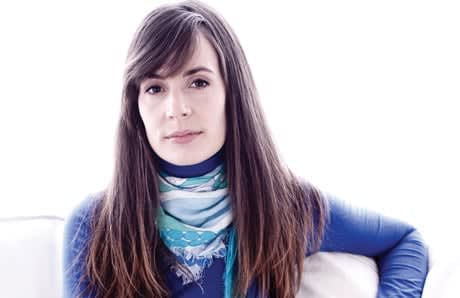Album number three generally marks the moment an artist attempts a more serious and measured approach to music making, and for new breed jazz talent Elizabeth Shepherd, this has meant less swinging soloist and more singer-songwriter. The subtle transformation is remarkably evident in new set Heavy Falls The Night, an exceedingly textured collection of story-driven tunes running the rhythmic gamut between thick and heady late night moods and high steppin' dance floor fillers. Showing complete confidence in her role as the record's lone producer, Shepherd enriches each cut with nuanced twists and enveloping layers, be they the snatching breaks and panning vocals of "The Taking" or the swooning harmonies and bird-like echoes of the album's title track. The unconventional string plucks and key combo on "One More Day" and hollowed-out percussion of "On The Sufficiency of Words" further diversify Shepherd's well-tailored compositions, while the tambourine-laced "Seven Bucks" provides some characteristic remix fodder. Through it all, the Juno-nominated singer and pianist's cool lyricism and impassioned delivery never tire, even when the words aren't her own, as is the case with her nostalgic Ann Murray/Loggins gem "Danny's Song," a perfect closer to a wholly satisfying album.
How would you describe what has made this album feel so different from the previous two?
I would say [the focus was] myself. That was really the big difference. I went to jazz school, and coming out of there I felt like I had to prove something. And I don't know if it's just getting older and feeling a little more settled in my own skin, but I felt that for this album it was more about just checking in with what I wanted to do musically. I also wanted to write more songs and stories about people, so that the song services the story, as opposed to a jazz tune that allows everyone to express themselves in a solo. I wasn't interested in solos; I wanted to let the song speak for itself.
Do you find that more traditional jazz doesn't really allow that?
A lot of jazz, unless it's vocal jazz, but even then [it] is really about the instruments and about allowing the instrumentalist to have a chance to express themselves musically. It's less about the song itself, whereas with singer-songwriters it's all about the song. So [I wanted to this to be] about the songs as these small, miniature blips in time that take you somewhere, and that's enough; it doesn't need to be anything more than that. It doesn't need everyone's two cents' worth, the bass solo... that just seems really formulaic after a while.
(Do Right!)How would you describe what has made this album feel so different from the previous two?
I would say [the focus was] myself. That was really the big difference. I went to jazz school, and coming out of there I felt like I had to prove something. And I don't know if it's just getting older and feeling a little more settled in my own skin, but I felt that for this album it was more about just checking in with what I wanted to do musically. I also wanted to write more songs and stories about people, so that the song services the story, as opposed to a jazz tune that allows everyone to express themselves in a solo. I wasn't interested in solos; I wanted to let the song speak for itself.
Do you find that more traditional jazz doesn't really allow that?
A lot of jazz, unless it's vocal jazz, but even then [it] is really about the instruments and about allowing the instrumentalist to have a chance to express themselves musically. It's less about the song itself, whereas with singer-songwriters it's all about the song. So [I wanted to this to be] about the songs as these small, miniature blips in time that take you somewhere, and that's enough; it doesn't need to be anything more than that. It doesn't need everyone's two cents' worth, the bass solo... that just seems really formulaic after a while.
